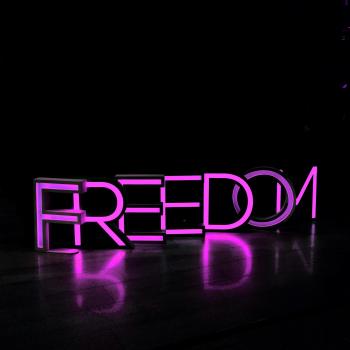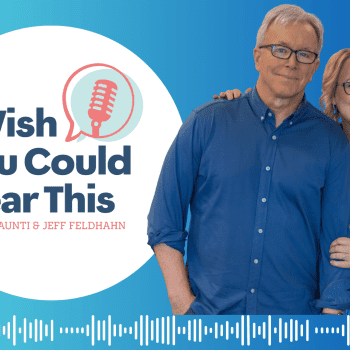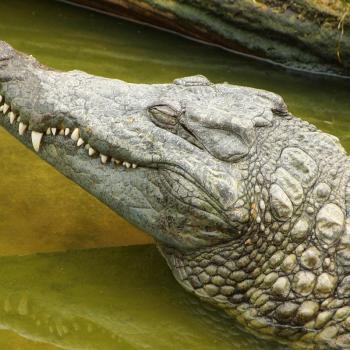Part of me rebels at that. I want to be more than a cancer patient and chronic pain patient. But I cannot be less than a cancer patient and a chronic pain patient. Those are large parts of my life. They are part of who I am. Although I would love to have my pain and my cancer removed tomorrow, that would not be an easy thing. I would have to learn how to be somebody else.
If God decided simply to free me of these conditions, I wouldn't just wake up in the morning and be deliriously happy. It would be a struggle. These things have been a part of me, a part of who I am. I have learned how to live alongside them and through them. Then I would have to learn how to live without them. I wouldn't know how to do that anymore.
Many people wonder what it will be like when they learn that their death is drawing near. Is there anything that surprises you?
Yes, absolutely, but I think that this is just another one of many, many pieces of divine mercy. One thing that has certainly surprised me is just how easy it has been to absorb that message that I'm going to die soon.
I will probably not survive 2010. Yet that message is much easier to take than I would have expected. I don't fully understand why. I would have thought that the knowledge that I am very likely in my last year of life would lead me to dwell on the dying. A certain amount of that is unavoidable. Death hangs in the air. It's as though I am living with an hourglass right in front of my face. You cannot look away from it. You cannot close your eyes to it. It's always there. But actually I think it has led me to dwell more on the living. It sounds really trite to say that things that seemed like very small matters seem really precious to me now. It's no novel thought -- but, in my case, it really is true.
Here is a completely trivial example. I have always enjoyed my wife's cooking, and always enjoyed eating good food at a restaurant. But not the way I enjoy it now. I just love eating something good at a time when it really appeals to me. Very often, a large fraction of the time, food doesn't appeal to me. I eat on a schedule because I know I have to, not because I want to. But at those times when eating is really satisfying a desire, it is just intensely pleasurable. It never used to be. That has something to do with the medical conditions, but it's also because I am dying and I know that I am dying.
It's a real mercy to know that I will die soon. Many people die suddenly, wholly unexpectedly, without any opportunity to prepare. I have been given the opportunity to finish some work I've been working on, and to do things for my children that I might not have done if I had assumed that I were going to live a long time yet. Those are incredible gifts.
Facing death, what do you fear and what do you not fear?
The awful part, the only thing about which I am sometimes scared, is the period right before death. Cancer deaths are ugly, and I assume mine will be ugly and painful and very, very unpleasant.
People do this. I will do it. People get through it. I will get through it. God will give me the resources I need when the time comes. But I try not to think very much about that.
There certainly are things about that hourglass that sting, that hurt. It hurts when my wife becomes sad because she wanted us to grow old together. We are not going to grow old together. She feels anticipated pain over my coming death, and seeing her feel the pain of that, that's hard.
I worry about my children. I want them to be happy. I won't be there to help my children when they might have wanted or benefited from my help. Now, my experience is nothing like that many middle-aged cancer patients feel. My children are grown. I have done virtually all the parenting one does. The parenting of adults is a different kind of enterprise. What their lives become will be up to them and up to God, not up to me. Still, they will have hard times and I would have liked to be available to help them. I won't be around to do that.
Those things aside, I must say that I would rather not have that hourglass in front of my face, but it's nowhere near as unpleasant as it first appears. It pains me that it pains my wife and children, but my own pain is not as bad as you would think.
What do you expect to find in the moment after you die?
I don't know. I'm not inclined to speculate a lot about it. We are told very little, and that's fine with me. I believe in the afterlife. I cannot begin to understand its precise character. Again, that's fine. It doesn't bother me at all.





